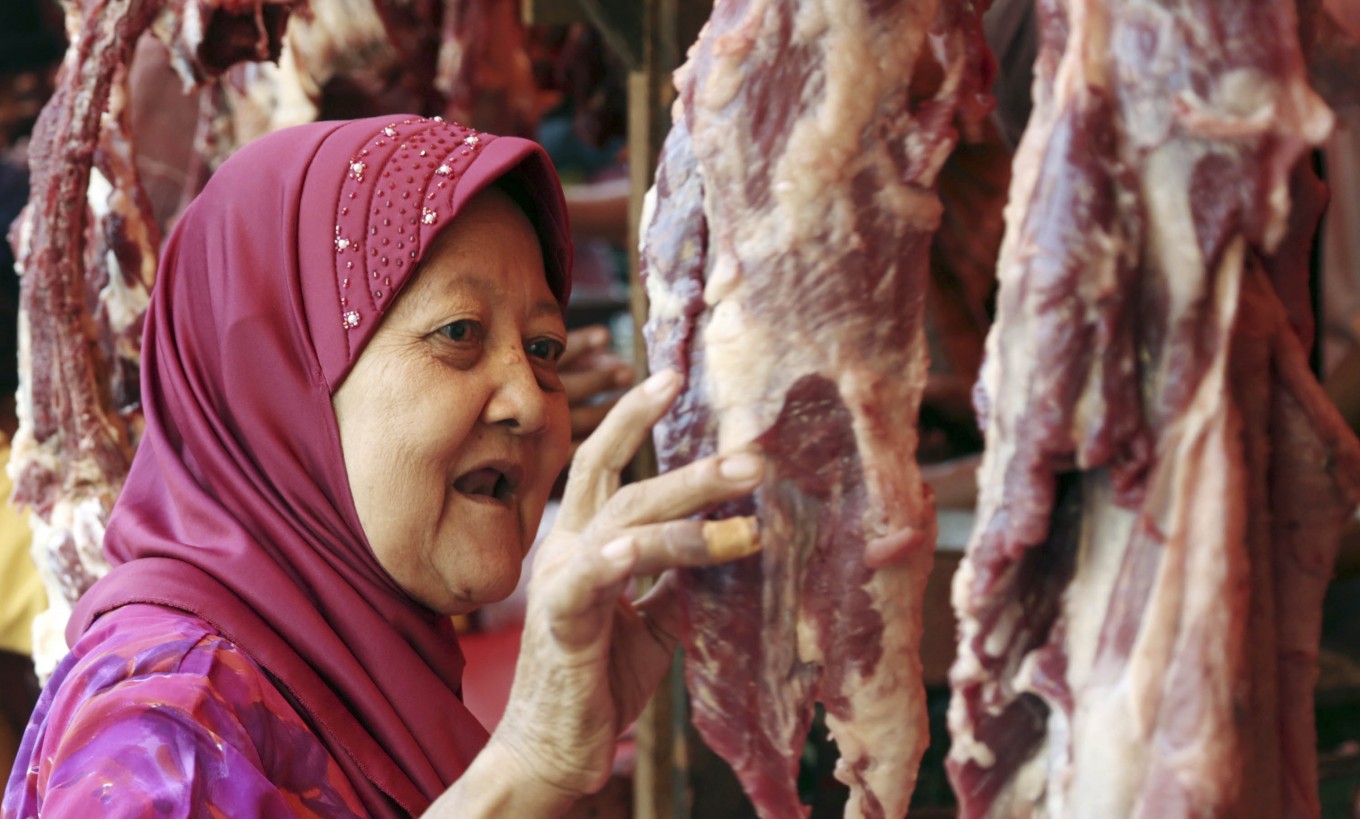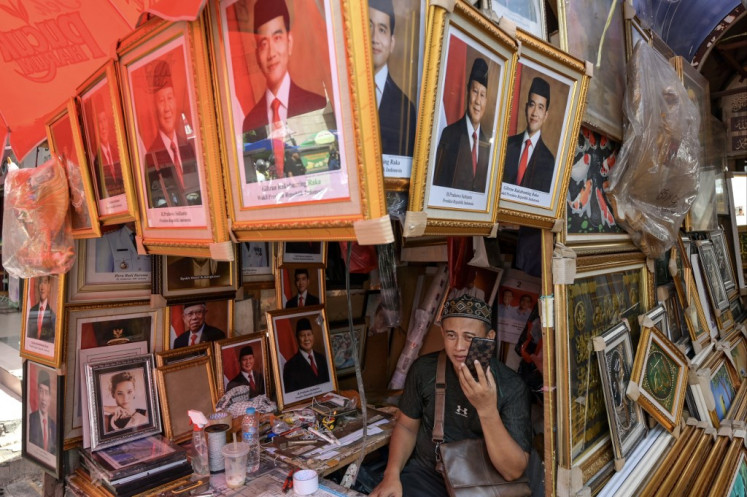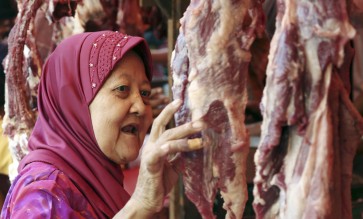Bumpy road to self-sufficiency in meat
After the program’s failure in 2014, when imports accounted for 30 percent of domestic demand, the government extended the deadline to 2026.
Change Size
 A Muslim woman shops for meat during the last few days of the holy fasting month of Ramadan at a market in Jakarta, Indonesia, Monday, July 4, 2016. Indonesians flock shopping malls and markets in the capital as they begin to shop in preparation for Eid al-Fitr, a celebration that marks the end of the Muslim fasting month of Ramadan.
(AP Photo/Achmad Ibrahim)
A Muslim woman shops for meat during the last few days of the holy fasting month of Ramadan at a market in Jakarta, Indonesia, Monday, July 4, 2016. Indonesians flock shopping malls and markets in the capital as they begin to shop in preparation for Eid al-Fitr, a celebration that marks the end of the Muslim fasting month of Ramadan.
(AP Photo/Achmad Ibrahim)
I
ndonesia has implemented various programs to achieve self-sufficiency in meat production for a decade. The objective of the program is to fulfill at least 90 percent of the domestic demand through domestic beef production, whereas the remainder can be supplemented by imports.
After the program’s failure in 2014, when imports accounted for 30 percent of domestic demand, the government extended the deadline to 2026. Nevertheless, this year, domestic beef production still accounts for 61 percent of the domestic demand, which reached about 663,290 tons. Therefore, the program to achieve self-sufficiency in meat production has fallen short of its goal. Indonesia still has to import meat to meet the shortages of domestic beef production.
To achieve the program’s target for self-sufficiency by 2026, the directorate general of livestock and animal health at the Agricultural Ministry introduced a special program to increase the number of pregnant Indonesian cows last year. The effort is called the UPSUS SIWAB program.
The core objective of the program is to accelerate the growth of the Indonesian herd through artificial insemination. With a budget of Rp 1 billion (US$69,380) last year, the government claims that at the national level, artificial insemination has reached 99.4 percent of the target of 4 million cows. However, if we look from the perspective of feed resources, with just eight years remaining before the 2026 target, the achievement to reach self-sufficiency remains questionable. These doubts are raised because the traditional cattle farming practices of smallholders, the low quality of cattle forage and scarcity of land for cattle fodder production limit national cattle production.

















